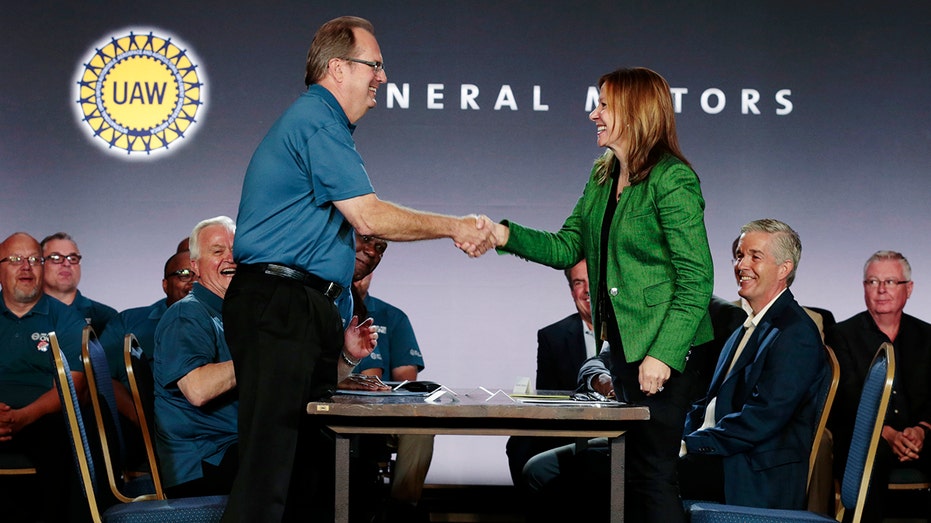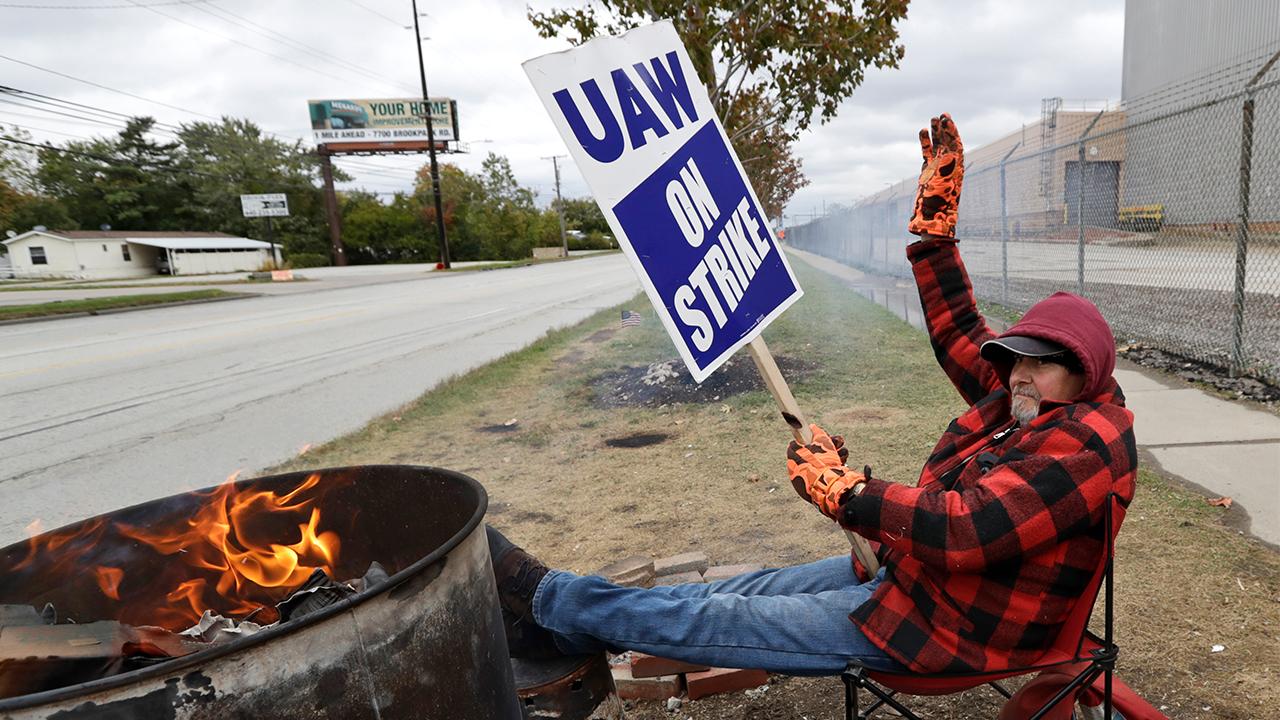GM strike to end as UAW members ratify new contract: Is Ford next?
Rank-and-file members of the United Auto Workers agreed to end a strike against General Motors by voting to approve a new contract on Friday, a source familiar with negotiations confirmed to FOX Business.
With the contract's approval, a six-week nationwide strike that brought the U.S. auto giant’s supply chain to a halt will end. Both parties had been in talks stretching into nights and weekends before coming to a tentative agreement.
It may not be the end of strikes in the automotive industry as late Friday the UAW said next on the docket are negotiations with Ford Motor Company.
“We can confirm the UAW today notified Ford it plans to negotiate with us next,” Ford said in a statement. “As America’s No. 1 producer of vehicles and largest employer of UAW-represented autoworkers, we look forward to reaching a fair agreement that helps Ford enhance its competitiveness and preserve and protect good-paying manufacturing jobs.”
Roughly 57 percent of UAW members voted to ratify the contract. Unionized GM workers are expected to receive an $11,000 ratification bonus as part of the deal. Temporary workers will receive $4,500. The agreement calls for 3 percent wage increases or 4 percent lump-sum payments in the first four years of the contract, as well as profit-sharing and a pathway for temporary workers to become full-time employees.
GM also affirmed plans to invest more than $7 billion in its U.S. operations.
“We delivered a contract that recognizes our employees for the important contributions they make to the overall success of the company, with a strong wage and benefit package and additional investment and job growth in our U.S. operations,” said Mary Barra, GM Chairman and CEO. “GM is proud to provide good-paying jobs to tens of thousands of employees in America and to grow our substantial investment in the U.S.
| Ticker | Security | Last | Change | Change % |
|---|---|---|---|---|
| GM | GENERAL MOTORS CO. | 84.24 | +0.94 | +1.13% |
Many workers who are dismayed at the thought of GM closing more plants will be disappointed that the agreement does not include reopening the Lordstown assembly plant in Ohio.
GM's Lordstown, Warren and Baltimore plants would go unallocated, per GM's original plan, while the Detroit-Hamtramck plant in Michigan, which was also going to be idled, would stay open and make electric trucks.
The future of temporary workers was a major sticking point — the agreement would provide full-time temporary workers with a pathway to permanent employment starting on Jan. 6, 2020. Part-time temporary employees would have a pathway to regular status beginning Jan. 1, 2021.
GM also caved following workers' anger at being asked to share a larger portion of health insurance costs.

Mary Barra, chairman and chief executive officer of General Motors Co. (GM), right, and Gary Jones, president of the United Auto Workers (UAW), shake hands during a GM event at the Renaissance Center in Detroit, Michigan, U.S., on Tuesday, July 16, 2
Industry expert Kristin Dziczek, of the Center for Automotive Research, said that the strike had some of its roots tied to GM's 2008 bailout.
"The union agreed to some changes to help GM and Chrysler get through some really tough times," she told FOX Business. "And now that [GM has] had a decade of very positive financial results, the union members wanted their share for that. It was difficult for the company to claim poverty."
The strike cost GM roughly $1.5 billion in lost profits, and employees won't see more than $835 million in direct wage losses, according to Michigan-based consulting firm Anderson Economic Group. Their calculations extrapolate to Oct. 20.
Roughly 49,000 UAW members walked off General Motors factory floors when the strike began.
FOX Business' Grady Trimble and Jason Racki contributed to this report.





















